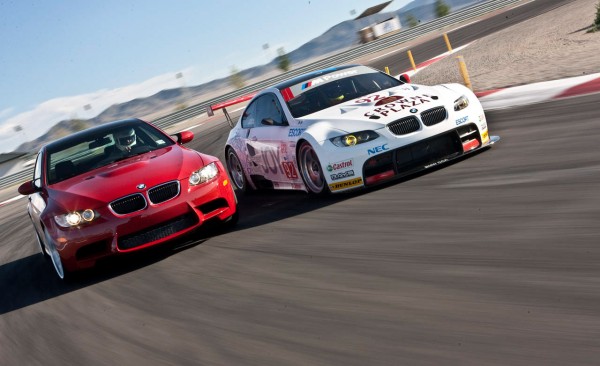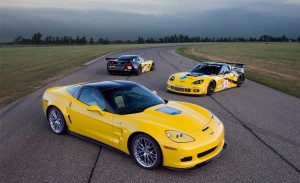**see ALMS Northeast Grand Prix Footage Under “Videos” Tab**
What does motorsports participation mean for automaker brands? Everything.
For generations, racing technology has developed into road car equipment. Automakers who are in motorsports are pushing beyond simply cosmetic updates and new marketing, they are upgrading the heart and soul of their consumer vehicles.
BMW took its paddle-shift system from the M3 GT car and mated it to the street M3. Corvette took its steering system, aluminum frame, and some aerodynamic elements from the C6.R and plugged it into the ZR1. Porsche adapted the flywheel and other components from the RSR to its GT3 and GT2 cars. Ferrari’s weight-saving measures from its racing GT3 vehicle ended up in the street-legal 430 Scuderia.
The examples go on, but what you need to know is this: when automakers with racing pedigree make road cars, they have years of tried and distilled technology to work with. These brands have earned your loyalty and they aren’t dissolving anytime soon.
It’s as Tadge Juechter, Corvette chief engineer said, “Simply put, without Corvette Racing, there would not be a Corvette Z06, much less the ZR1,”
This isn’t to say automakers who aren’t racing don’t have quality vehicles. Hyundai does not involve itself in motorsports yet its sales are off the charts. Still, if Hyundai tries to make a Porsche 911 competitor, as recent rumors suggest, it will have a serious challenge to hit the target first attempt.
A successful racing program means more than publicity for automakers and their brands, it’s a reflection of commitment to automotive progression.
**what aspects of automaker’s racing cars do you want to see most in the consumer vehicles?



